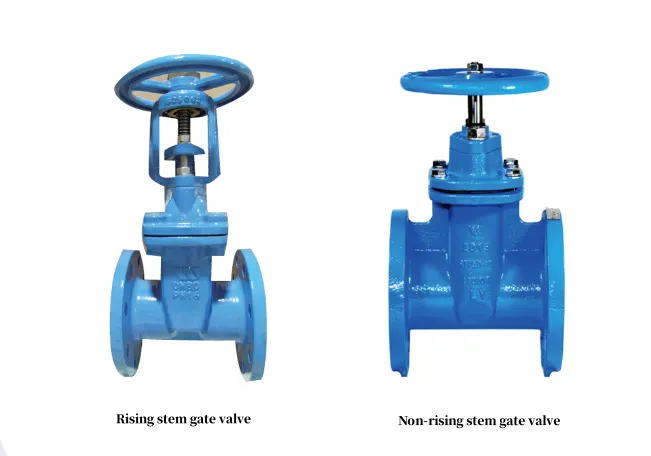Leading Manufacturer of Valve and Pipe Fittings for Industrial Applications
Understanding the Role of Valve and Pipe Fitting Manufacturers in Industrial Applications
In the complex world of industrial processes, the significance of valve and pipe fitting manufacturers cannot be overstated. These manufacturers play a vital role in ensuring the safe and efficient transportation of fluids and gases across various sectors, including oil and gas, water treatment, chemical manufacturing, and power generation. This article delves into the importance of these components, the manufacturing process, and the selection criteria for choosing a reliable supplier.
The Importance of Valves and Pipe Fittings
Valves and pipe fittings are essential components in any piping system. Valves control the flow and pressure within the pipes, allowing for precise regulation of fluids. They can be found in various forms, including gate valves, globe valves, ball valves, and check valves, each designed for specific purposes. Pipe fittings, on the other hand, are used to connect different sections of piping and navigate changes in direction, flow, or size. Examples of fittings include elbows, tees, couplings, and flanges.
The interconnection of these elements ensures that systems operate smoothly and safely. In industries where fluids can be hazardous, the reliability of valves and fittings is crucial. A failure in these components can lead to leaks, spills, and even catastrophic accidents, highlighting the necessity of high-quality manufacturing standards.
The Manufacturing Process
The manufacturing of valves and pipe fittings involves several steps, each requiring precision and expertise. The process typically begins with selecting appropriate materials, which can include stainless steel, carbon steel, brass, and other alloys, depending on the application. These materials must withstand various pressures, temperatures, and corrosive environments.
Once the materials are chosen, the manufacturing process includes
1. Casting and Forging Basic shapes are created through casting or forging techniques. Casting involves pouring molten metal into a mold, while forging involves shaping the metal using compressive forces. Both methods have their advantages and are chosen based on the required strength and complexity of the valve or fitting.
2. Machining After forming, the components undergo machining to achieve precise dimensions. This step is essential, as accurate measurements are critical for ensuring proper fit and function within a piping system.
3. Heat Treatment Many manufacturers apply heat treatment processes to enhance the strength and durability of the components. This step can increase resistance to wear and corrosion, extending the lifespan of the valves and fittings.
valve pipe fitting manufacturer

4. Finishing The final stage involves surface treatments and coatings to further protect the components and improve their aesthetic appeal. This may include polishing and applying protective coatings to resist corrosion.
5. Quality Control Throughout the manufacturing process, rigorous quality control measures are implemented. Testing for pressure, leakage, and material integrity ensures that the final products meet industry standards and customer specifications.
Selecting a Reliable Manufacturer
When it comes to sourcing valves and pipe fittings, choosing a reliable manufacturer is paramount. Here are several factors to consider
- Certification and Standards Ensure that the manufacturer adheres to industry standards, such as ISO 9001, API, or ASME. Certifications indicate a commitment to quality and reliability.
- Experience and Reputation A manufacturer with extensive experience in the industry is often more reliable. Researching customer reviews and case studies can provide insight into their reputation.
- Range of Products A manufacturer that offers a wide range of products and customization options can better meet specific project needs.
- Technical Support A responsive customer service team and access to technical expertise are invaluable. Support in selecting the right products and troubleshooting potential issues can save time and resources.
- After-Sales Service Consider manufacturers offering warranties and after-sales support. A strong warranty reflects confidence in the product's reliability and durability.
Conclusion
In conclusion, valve and pipe fitting manufacturers play a crucial role in the functionality and safety of industrial processes. Their products are integral to the efficient flow of fluids and gases across various applications. By understanding the manufacturing process and the key factors for selecting a reliable supplier, industries can ensure that their piping systems operate effectively, safely, and sustainably, contributing to overall operational excellence and environmental stewardship. As industries continue to evolve, so too will the technologies and innovations within the realm of valves and pipe fittings, reinforcing their importance in modern industrial applications.
-
The Versatility of Ball Valves in Fluid Control SystemsNewsJun.10,2025
-
The Practical Benefits of Centerline Butterfly ValvesNewsJun.10,2025
-
The Benefits of Bellows Seal Globe Valves for Industrial SystemsNewsJun.10,2025
-
The Advantages of Offset Butterfly ValvesNewsJun.10,2025
-
Ductile Gate Valves: Strong, Reliable, and Essential for Every SystemNewsJun.10,2025
-
Cast Iron Gate Valves: A Reliable Solution for Every SystemNewsJun.10,2025
-
Why Choose a Brass Gate Valve for Superior Performance and DurabilityNewsMay.09,2025




